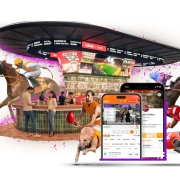TOP 5 WAYS TO MAKE MEETINGS MORE EFFECTIVE
In the world of club management, time is a precious commodity. Senior operational managers in the club and pub industry often balance a diverse array of responsibilities—ensuring seamless daily operations, optimising the member experience, and aligning with long-term strategic goals. Meetings play a vital role in synchronising efforts, but poorly managed meetings can quickly drain productivity. Here are five proven ways to make meetings more effective, helping senior operational managers maximise their time, streamline decision-making, and drive actionable outcomes.
- Define Clear Objectives and Outcomes
Meetings without a clear purpose often become unproductive discussions.
A key part of an effective meeting is clarity—defining exactly why you’re gathering and what outcomes you want to achieve. Senior managers, who often have competing demands on their time, benefit significantly from concise objectives. Establishing these objectives in advance also helps keep the team focused and ensures discussions remain relevant.
Tips to Implement:
- Start with the ‘why’: Clearly state why the meeting is necessary and what it’s aiming to resolve or accomplish.
- List desired outcomes: Each meeting should aim to reach a decision, review specific performance metrics, or develop an action plan. Define these goals ahead of time and share them with attendees.
- Allocate time for each agenda item: If certain topics need more focus, assign specific time slots. This will prevent lengthy, off-topic discussions and allow for a balanced meeting flow.
- Foster Collaboration, Not Reporting
Move beyond passive reporting to collaborative, solution-oriented discussion.
Many senior operational managers in the club industry fall into the trap of conducting meetings that feel more like reporting sessions. Instead, meetings should facilitate collaboration and decision-making. Transform your meetings into interactive sessions where participants actively contribute insights and solutions, not just updates.
Tips to Implement:
- Send reports beforehand: Circulate performance summaries or updates before the meeting. This allows team members to review data at their convenience, making them ready for deeper discussions.
- Focus on problem-solving: Use meeting time to troubleshoot challenges and brainstorm solutions. This encourages a collaborative environment where team members feel empowered to contribute.
- Encourage cross-departmental input: Clubs have various departments (e.g., food & beverage, events, and membership). By encouraging input from multiple perspectives, you foster a more comprehensive approach to issues.
- Limit Attendees and Encourage Accountability
Effective meetings prioritise quality of input over quantity of attendees.
Senior managers often assume that inviting multiple team members to a meeting will help cover all bases. However, excessive attendance can dilute accountability and reduce engagement. Aim for a lean, focused attendee list—one that includes only those directly relevant to the discussion.
Tips to Implement:
- Invite key decision-makers: Only include those whose expertise or input is essential to the meeting’s objectives. Other staff can be briefed afterward if necessary.
- Assign action items: Close each meeting with clearly assigned tasks, setting deadlines to ensure follow-through.
- Rotate participants as needed: If your agenda regularly covers multiple areas, consider rotating participants depending on the meeting focus to keep engagement high and input relevant.
- Make Use of Technology to Streamline and Document
Leverage technology to maximise efficiency and ensure clarity.
Technology can be a powerful ally in ensuring meetings are productive and well-documented. In the Australian club industry, project management tools can streamline processes, allowing for smoother coordination.
Tips to Implement:
- Use cloud-based agendas: Platforms like Google Workspace or Microsoft Teams enable participants to view and comment on agendas in real time.
- Record minutes efficiently: Designate someone to document critical decisions and actions or use recording tools to capture meeting content and assign follow-ups through collaborative apps like Asana, Monday.com, or Trello.
- Track outcomes over time: Software like Slack or MS Teams allows managers to keep ongoing discussions and meeting notes in organized channels. This creates a record of progress and enables follow-up without redundant meetings.
- Follow Up with Clear Action Plans
Ensure every meeting concludes with actionable steps and accountability.
Meetings are only as valuable as the actions they generate. In a busy operational environment, follow-through is critical to avoid losing momentum or letting tasks slip through the cracks. Close each meeting with a concise action plan that outlines next steps, responsibilities, and deadlines.
Tips to Implement:
- Summarise key points: Before ending, take a few minutes to summarize the decisions made and tasks assigned. This reinforces understanding and accountability.
- Distribute post-meeting summaries: Send a brief recap email or shared document that lists action items, who is responsible, and when tasks are due.
- Track and revisit tasks: Use follow-up meetings to check progress on action items. Regular accountability will reinforce the importance of each task and drive consistent results.
Final Thoughts
Effective meetings are essential for senior operational managers in the club and pub industry to align teams, make informed decisions, and drive operational success. By implementing these five strategies—defining clear objectives, fostering collaboration, limiting attendees, leveraging technology, and ensuring follow-up—meetings can transform from a time drain into a powerful tool for achieving organisational goals. With intentional planning, senior managers can lead meetings that respect everyone’s time, focus on meaningful issues, and, most importantly, produce measurable outcomes that move the club or hotel forward.













